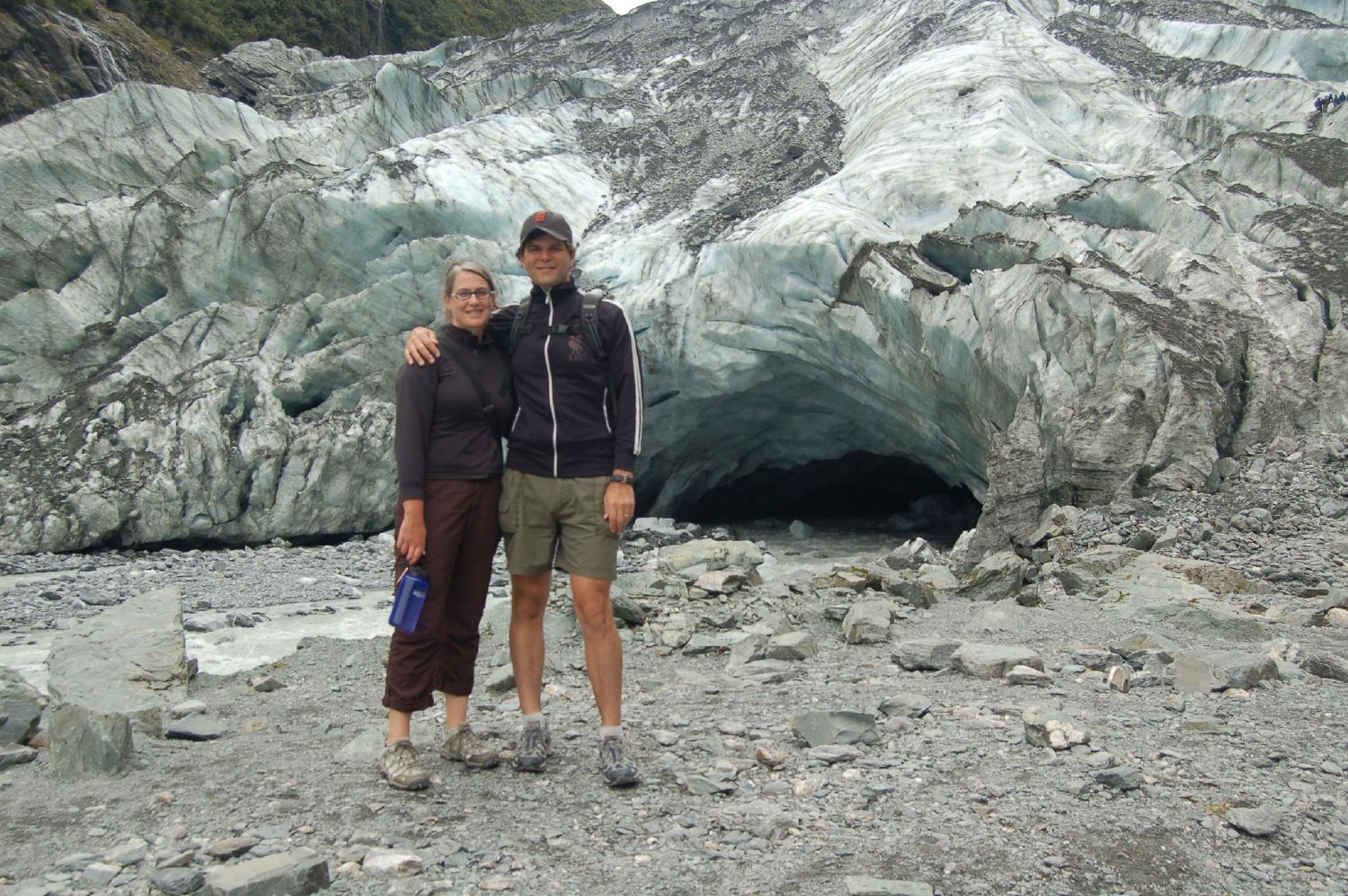
Some of you are probably wondering how the heck we are making our money stretch around the world. The answer is on a budget! As we planned and planned and then planned some more prior the trip, we did our best to estimate our costs from everything to tickets and visas and travel insurance to daily costs and special, one-time expenses like tours. For each country, we’ve established a daily rate for the both of us. For more expensive countries (or comparable to the U.S.), we’ve set out a rather tight daily allowance.
Arriving in New Zealand as our first destination on the grand world tour was both good and bad. On the positive side, it was easy to travel here. Everyone speaks English and the place was built for tourism. On the negative side, it was a hard landing for our budget. It definitely took us a couple of weeks to sink into a pattern of not eating out and nickel and diming ourselves to death. At home, we are in the habit of eating out frequently and even when you travel on a 2-3 week trip, you would eat most meals out. Well unless you have loads of cash, you don’t do that every day on a round the world trip.
So, if you’re interested in budget travel in NZ, here are a few things we learned:
- Though the country is small, it can take some time and money to get around to the most remote and interesting places. I would really not plan a trip here for under four weeks. Take your time, get your own mode of transport and do it the way you want.
- The best way to go for us was with car and tent. We scored a super cheap car rental (approx. $14/day) that was very economical on gas. We travelled almost 4000 km and spent about $250 on gas. Not too bad. The camper-vans are a very popular rental option and probably great if it’s cold and wet and you don’t want to deal with bringing a tent, sleeping bag, etc. They are also equipped for cooking which is a bonus. For us, at this time of year, the price would have been about 5-6 times more than the car.
- Lodging was easily one of our largest expenses – mostly in the cities. We opted for private double rooms, rather than shared dorms in the hostels. It was extremely difficult for us to stay on our daily budget when we were in cities. In contrast, it was quite easy to be under budget when we were camping.
- Caravan parks are everywhere and are certainly cheaper than hostels and hotels. They have full kitchens, often with all the utensils you need. Most also have basic cabins which can be a great bargain. A little more than a tent site for two and far less than a hostel. For us, it allowed us to dry out the tent and sleep in a bed from time to time. Even cheaper and typically more scenic than caravan parks are Department of Conservation or DOC sites. You usually have to have your own cooking supplies, but they almost all have toilets and water.
- Come during the non-peak season. We were here during the high season with half of Germany. As to be expected, prices are higher. We’ve heard reports of rentals and lodging being heavily discounted with many fewer tourists later in the year. You may have to forgo warm, summer weather, but as far as we can tell, that wouldn’t mean much.
- Restaurants are expensive – even by our standards at home. When we did eat out it was usually at a take away type joint with falafel or a veggie burger. Grocery stores even in the smallest town had a decent selection of food (even tofu) and for us we could cook more balanced and interesting meals cheaper than we could eat out. Our other little find – as bad as this may sound – was food courts. In both Dunedin and Auckland we found very good and very cheap Indian food at the local mall food court.
- Skip the tours or at least be selective. You could spend thousands in New Zealand on sightseeing flights, skydiving, bungy jumping, zorbing, glacier hiking. We skipped most and don’t feel like we missed out on anything. We had originally planned to hike the glacier, but for the cost we would have had very little time on the ice. At Franz, we basically did the same hike up to the face as every tour. No, we didn’t put on the crampons and walk on the ice, but we enjoyed it just the same. Again, for the kind of trip we’re taking we have to decide which experiences really add to our experience and are unique to the place we’re visiting. You could argue that AJ Hackett’s – home of the original bungy jump – is unique to NZ, but watching those silly people jump off the bridge was more than adequate!
- When planning a trip like this, don’t forget to budget for the miscellaneous little things. They add up.
- Get a job. If you’ve got the time and feel like experiencing a country without blowing all your cash, this is a great place to make some cash (seems like fruit pickers are in demand) or even subsidize your stay with a few hours of cleaning at the hostel. This wasn’t in our plans, but had NZ been later in our itinerary it may have been.